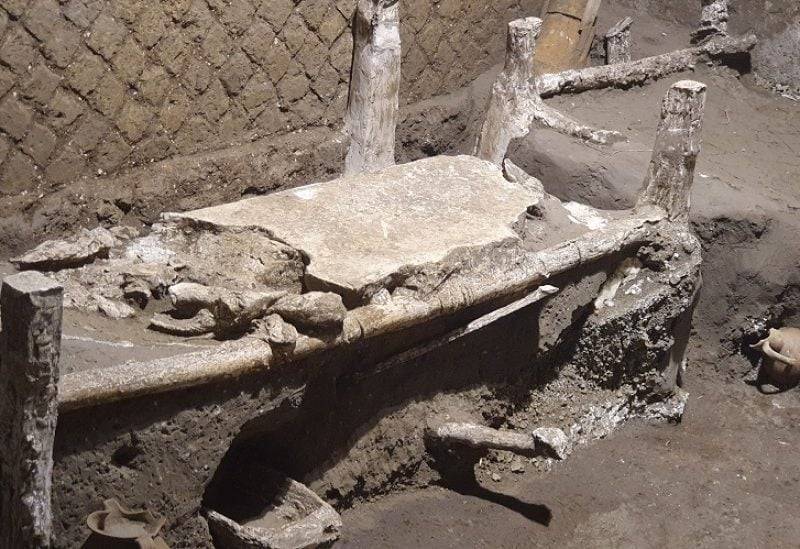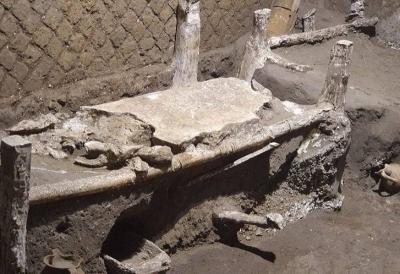The Italian Ministry of Culture announced on Sunday that archaeologists discovered a small bedroom in a Roman palace near the archaeological site of Pompeii, which was likely designated for slaves, shedding light on their low status in the ancient world. The room was found in a palace in the Civita Giuliana area, about 600 meters north of the walls of Pompeii, a city buried by a volcanic eruption nearly two thousand years ago.
The small bedroom contains two beds, only one of which has a mattress, two small wardrobes, and a collection of jars and ceramic vessels, some of which contained the remains of mice and rats. The Ministry of Culture stated, "These details again highlight the difficult conditions and lack of hygiene faced by the lower classes during that time." There were no traces of bars, locks, or chains to restrain the room's inhabitants.
Gabriel Zuchtriegel, the director of the Pompeii archaeological site, stated, "Control seems to have been exercised primarily through the internal system of slavery, not through physical barriers and restraints." Archaeologists noted that part of one of the beds was damaged due to a tunnel used by thieves to access another part of the palace.
Italian Culture Minister Gennaro Sangiuliano confirmed on Sunday that maintenance and research efforts will continue. He added, "What we know about the living conditions and social system of that era opens new horizons for historical and archaeological studies." The eruption of Mount Vesuvius in 79 AD buried the city of Pompeii and the surrounding rural areas in volcanic ash, resulting in the deaths of thousands of Romans who had no idea they were living at the foot of one of Europe’s largest volcanoes.




